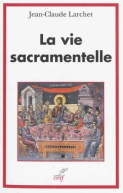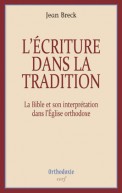L'Église corps du Christ, 2
Collection Théologies
240 pages - mai 2012
27,50€
Dans ce deuxième volume d'une série de trois consacrée à la conception orthodoxe de l'Église, l'auteur étudie, dans leurs aspects problématiques, les relations des Églises orthodoxes locales entre elles et avec les autres confessions chrétiennes. Sont d'abord examinées ici la question, aujourd'hui très débattue dans le cadre du dialogue œcuménique, de la primauté du siège de Rome, et celle, faisant l'objet d'un vif débat interne parmi les Églises locales orthodoxes, de la nature de la primauté du siège de Constantinople et de l'étendue de ses attributions. Sont ensuite étudiés les problèmes posés par l'organisation ecclésiale de la diaspora orthodoxe au XXe siècle ; à travers cette étude sont abordés certains aspects problématiques de la politique actuelle du patriarcat de Constantinople et du patriarcat de Moscou. Sont enfin analysées les relations de l'Église orthodoxe avec les autres confessions chrétiennes, à travers une présentation de leurs divergences, une réflexion sur la nature, le contenu et la forme du mouvement œcuménique, et une analyse historique et ecclésiologique des modes de réception des non-orthodoxes au sein de l'Église orthodoxe. Dans la suite du précédent, ce volume permet de mieux comprendre la conception orthodoxe de l'Église. Dégageant clairement les points de divergences entre l'Église orthodoxe et les autres confessions chrétiennes (catholicisme et protestantisme), mais aussi entre certaines Églises orthodoxes locales, il constitue un apport important tant au dialogue interorthodoxe qu'au dialogue interchrétien.
--
In this second volume in a series of three devoted to the Orthodox conception of the Church, the author studies the relations between local Orthodox Churches, and their relations with other Christian confessions, focusing on their problematic aspects. Firstly treated is the question of the primacy of the Holy See of Rome, today widely debated in the context of ecumenical dialogue. Then, the nature of the primacy of Constantinople and the span of its attributions, also a subject of lively internal debate among local Orthodox Churches. Next the issues posed by the ecclesial organisation of the Orthodox Church in the 20th century are studied. Certain problematical aspects of today’s policy practised by the patriarchates of Constantinople and of Moscow are treated in this study. In the next part, the relations between the Orthodox Church and other Christian confessions are analysed through a presentation of their differences, a reflection on the nature, contents and form of the ecumenical movement, and a historical and ecclesiological analysis of the reception of non-Orthodox Christians within the Orthodox Church. This volume permits us to understand the Orthodox conception of the Church. Clearly defining the points of divergence between the Orthodox Church and other Christian confessions (Catholicism and Protestantism), but also between certain local Orthodox Churches, it makes an important contribution to inter-Orthodox and inter-Christian dialogue.
--
In this second volume in a series of three devoted to the Orthodox conception of the Church, the author studies the relations between local Orthodox Churches, and their relations with other Christian confessions, focusing on their problematic aspects. Firstly treated is the question of the primacy of the Holy See of Rome, today widely debated in the context of ecumenical dialogue. Then, the nature of the primacy of Constantinople and the span of its attributions, also a subject of lively internal debate among local Orthodox Churches. Next the issues posed by the ecclesial organisation of the Orthodox Church in the 20th century are studied. Certain problematical aspects of today’s policy practised by the patriarchates of Constantinople and of Moscow are treated in this study. In the next part, the relations between the Orthodox Church and other Christian confessions are analysed through a presentation of their differences, a reflection on the nature, contents and form of the ecumenical movement, and a historical and ecclesiological analysis of the reception of non-Orthodox Christians within the Orthodox Church. This volume permits us to understand the Orthodox conception of the Church. Clearly defining the points of divergence between the Orthodox Church and other Christian confessions (Catholicism and Protestantism), but also between certain local Orthodox Churches, it makes an important contribution to inter-Orthodox and inter-Christian dialogue.
- Dimensions : 145x230x15
- ISBN : 9782204097727
- Poids : 360 grammes
DU MÊME AUTEUR
Divinisation de l'homme selon saint Maxime le Confesseur (La) - CF 194
de Jean-Claude Larchet
768 pages - mars 1996
> VOIR TOUS LES LIVRES DE l'AUTEUR
DANS LA CATÉGORIE INTRODUCTION AUX CHRISTIANISMES
Beauté salvatrice - Mère Marie (Skobtsov) (La)
Peintures - Dessins - Broderies
de Xenia Krivochéine
112 pages - sept. 2012











